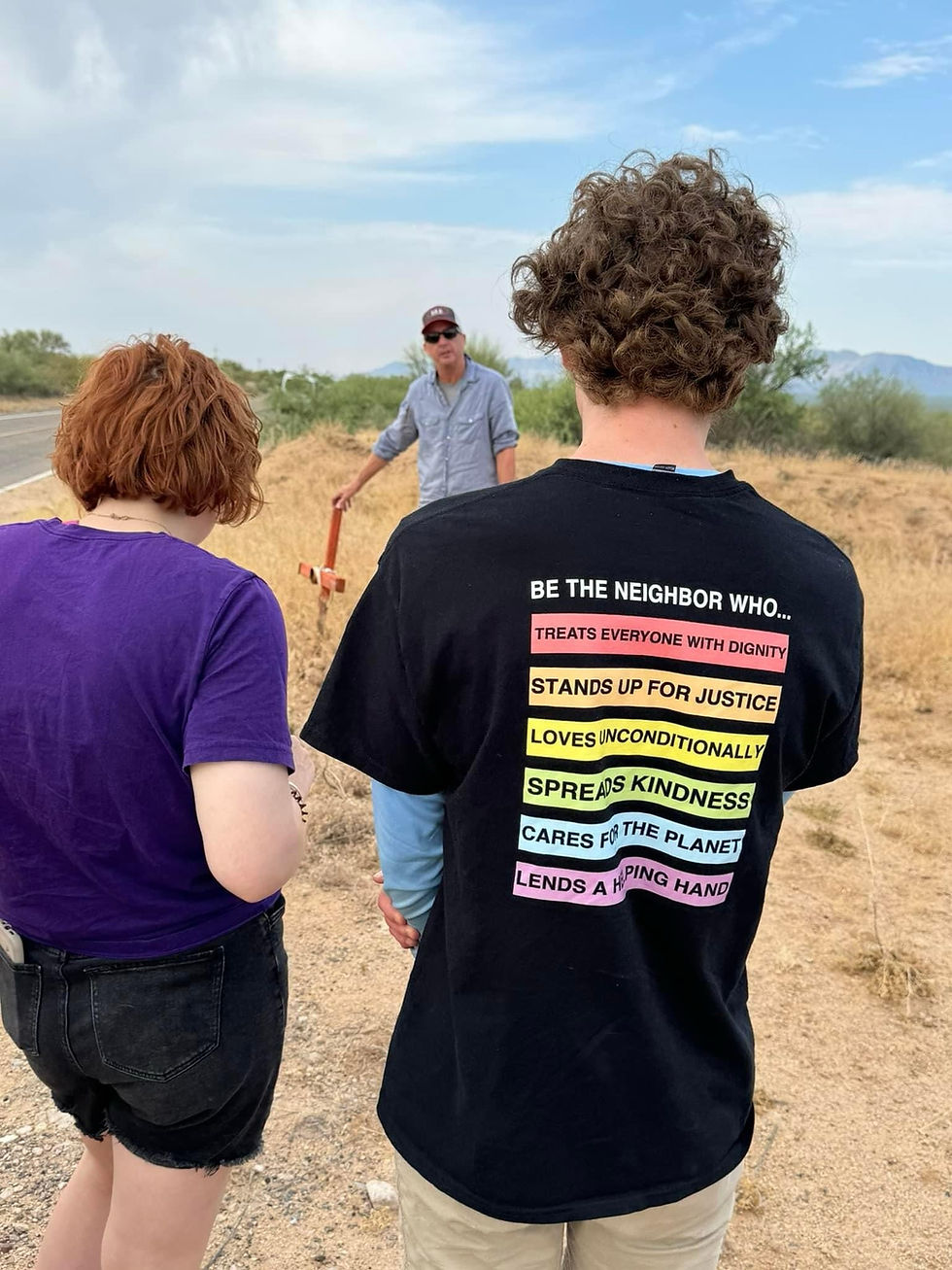Summer Staff Reflection: Tucson, AZ
- Sep 6, 2024
- 3 min read
Reflection by Jack Zamary

What do you think of when you hear the word desert? Maybe rolling sand dunes, tall cacti, or even a fictional landscape from the novel Dune. When I think of the desert, I think of dehydration, displaced families with a dream, and a 30-foot wall that divides.
After spending two weeks in Tucson, AZ, this summer with Be The Neighbor, the first
thing that comes to mind for me is the Sonoran desert. A vast landscape spanning over 86,000 square miles and bridging the gap between the southern border of the United States and Mexico.
My time in Tucson was spent with various organizations, working in the city with
Iskashitaa to empower migrants and refugees through food-based harvesting programs,
working along the wall with the Good Samaritans to maintain camps for migrants, and
aiding Humane Borders in their efforts to provide water at key locations in the Sonoran
so migrants may have reduced worries concerning dehydration and death on the final
stretch of their journey. I was also fortunate to work with La Casa de La Misericordia in
Nogales, Mexico, where migrants waited to receive sponsors on the U.S. side so they
could legally proceed through the asylum process in U.S. court.

While working with migrants, I found that communication through conversation was the most impactful. Having lived abroad in Bogota, Colombia, for four years and developing my fluency in Spanish, I was able to converse freely with all our neighbors who made the strenuous journey across Latin America to the United States. Despite their hardships, being able to chat with them would always bring smiles to their faces as we talked about sports and shared jokes. Hearing the stories of asylum seekers who had
traveled for months from Venezuela or talking to families who had just been dropped off along the wall by Mexican cartels, I came to understand the danger, strain, and terror they had experienced along the way. Furthermore, knowing that only four percent of these people would be given lawful status through the asylum process in the U.S. brought with it the reality that my actions could only go so far, and despite the help I provided, I would ultimately not be making the hard decisions that would determine their fate.
After all, engraved on the statue of liberty is the phrase, “Give me your tired, your poor,
your huddled masses yearning to breathe free.” Taking two weeks out of my summer to
learn and do meaningful, dignity-affirming service in Arizona is not a solution to the
problems we face. However, the gratitude I saw in every smile during my conversations
instilled in me a need to continue to help wherever possible. I now have the desire to
return to Tucson with one of the many organizations I worked with to further this new
found passion, providing the service necessary to help our neighbors who have such a
strong desire for a new start, free from persecution because of race, gender, sexual
orientation, or beliefs.
**A huge thank you to Be The Neighbor for providing me with this phenomenal
opportunity to lead youth in lives of love, service, and justice while also learning
alongside them. The work and learning that took place in Tucson was incredibly
meaningful to me, especially following President Biden’s executive order barring many
of our neighbors from seeking asylum in the United States.




Comments